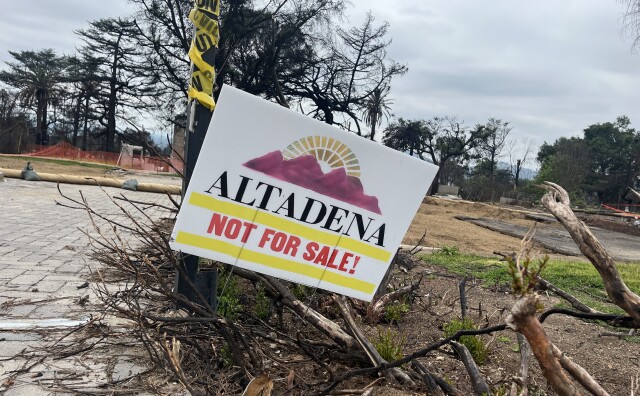Congress has cut federal funding for public media — a $3.4 million loss for LAist. We count on readers like you to protect our nonprofit newsroom. Become a monthly member and sustain local journalism.
This archival content was written, edited, and published prior to LAist's acquisition by its current owner, Southern California Public Radio ("SCPR"). Content, such as language choice and subject matter, in archival articles therefore may not align with SCPR's current editorial standards. To learn more about those standards and why we make this distinction, please click here.
Los Angeles Is Getting Its First Co-Op Coffee Roastery

Los Angeles is a city of renters, and not just when it comes to housing. You can lease a desk at a co-working space, rent out a sound studio for a film shoot, or even nab a temporary stovetop at a communal kitchen. Soon, you’ll also be able to lease a space in a commercial coffee roastery.
Scott Rao, a longtime cafe owner turned coffee consultant and the author of several books on the subject, is planning to open a roasting cooperative near downtown Los Angeles next year. He announced the news in a blog post on his website this week, writing that after nearly ten years of dreaming about it, he finally secured a space to offer “the highest quality cooperative roasting operation in the U.S.” Rao believes his spot would be the city’s first co-op roastery.
What exactly is a cooperative roastery, you ask? “The concept of co-roasting is you have a bunch of co-roasting machines,” says Rao. “And you’re basically renting time to people to use your equipment and basically, the users will actually end up spending less money on any given amount of coffee than they would if they had their own facility.”
Think of it as an Airbnb, but for people who are really, really into coffee and have the desire to roast it on a large scale. The space would likely appeal to owners of small cafes and coffee shops, restaurateurs who want to create their own blend of coffee for their menus, and serious hobbyists who are looking to start their own independent roasting operations but don’t have the equipment, the space, or the financial resources to do it on their own. “Roasting alone in a warehouse is one of the more boring jobs out there,” says Rao, a UCLA alum who now lives in Santa Barbara.
The co-op is geared toward roasters with experience, but Rao isn’t opposed to lending his years of industry knowledge and expertise to anyone who needs it. “I am not setting this up as an educational facility, but certainly if someone wants to be a user in my facility I’m happy to do everything I can to get them up to speed,” he says. After all, the appeal of a co-op isn’t just the economics of it, but also “the fostered sense of community" and "potentially shared learning and a lot of camaraderie,” he adds.
The roastery will likely offer hourly, half-day, and full-day rates, but Rao hasn’t decided on what those rates will be yet. He also says the co-op will be teaming up with “coffee-related neighbors,” but declined to offer any details on what that might look like. “I like the idea of having this little community of roasters involved,” he says. He’s currently waiting on permits from the city and hopes to open by mid-2018.
As Editor-in-Chief of our newsroom, I’m extremely proud of the work our top-notch journalists are doing here at LAist. We’re doing more hard-hitting watchdog journalism than ever before — powerful reporting on the economy, elections, climate and the homelessness crisis that is making a difference in your lives. At the same time, it’s never been more difficult to maintain a paywall-free, independent news source that informs, inspires, and engages everyone.
Simply put, we cannot do this essential work without your help. Federal funding for public media has been clawed back by Congress and that means LAist has lost $3.4 million in federal funding over the next two years. So we’re asking for your help. LAist has been there for you and we’re asking you to be here for us.
We rely on donations from readers like you to stay independent, which keeps our nonprofit newsroom strong and accountable to you.
No matter where you stand on the political spectrum, press freedom is at the core of keeping our nation free and fair. And as the landscape of free press changes, LAist will remain a voice you know and trust, but the amount of reader support we receive will help determine how strong of a newsroom we are going forward to cover the important news from our community.
Please take action today to support your trusted source for local news with a donation that makes sense for your budget.
Thank you for your generous support and believing in independent news.

-
People moving to Los Angeles are regularly baffled by the region’s refrigerator-less apartments. They’ll soon be a thing of the past.
-
Experts say students shouldn't readily forgo federal aid. But a California-only program may be a good alternative in some cases.
-
The program is for customers in communities that may not be able to afford turf removal or water-saving upgrades.
-
More than half of sales through September have been to corporate developers. Grassroots community efforts continue to work to combat the trend.
-
The bill would increase penalties for metal recyclers who possess or purchase metal used in public infrastructure.
-
The new ordinance applies to certain grocers operating in the city and has led to some self-checkout lanes to shutter.







